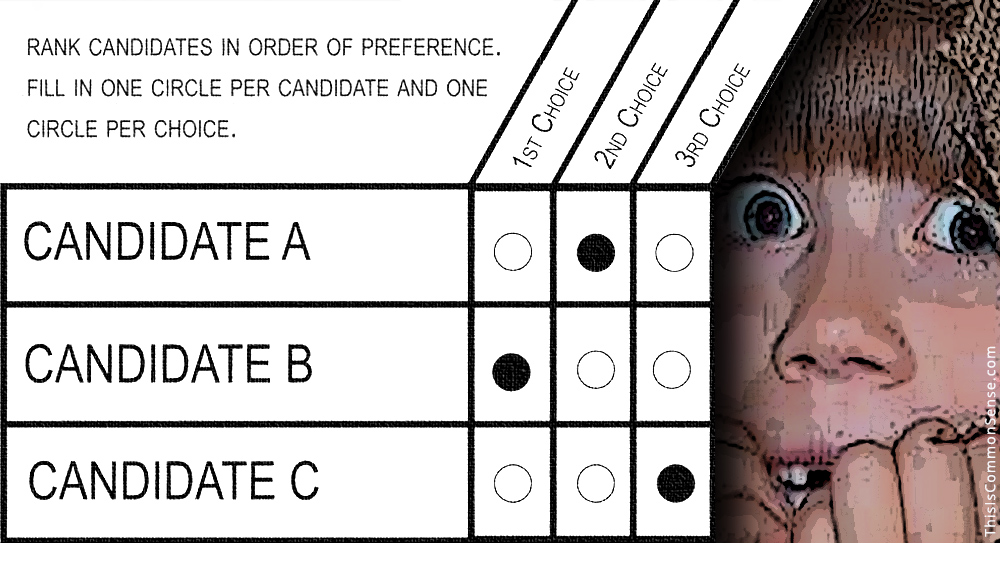Tuesday’s biggest election news was the victory for Ranked Choice Voting (RCV) in Maine. This is the second statewide vote for this reform, which allows voters to rank the candidates by first choice, second choice and so on.*
Voters first passed it in 2016, but the next year the voters’ “representatives” in the legislature repealed the law, overturning their vote.
Undeterred, RCV supporters filed a referendum and again went out and gathered enough petition signatures to refer the legislature’s repeal to a vote of the people. On Tuesday, Maine’s voters vetoed the legislature, keeping Ranked Choice Voting.
Initiative and referendum sure are helpful.
RCV is not partisan; it requires the winner to have some level of support from a majority of voters and fixes the wasted vote problem. In Maine, however, the Republican Party opposed. On election day, Republican Gov. Paul LePage even threatened not to do his duty and certify the results.
“Paul Jacobs (Vice chair of the [FairVote] Board) whom I once knew and thought was a good American,” a Republican friend posted on my Facebook page, “has helped unleash the hounds of Hell” … adding that “now the voters are so confused by the terrible procedure that voting will be a nightmare this Tuesday!”
Yet voters used the new voting system for the first time Tuesday in candidate primaries before deciding Question 1 on their ballot — about keeping RCV. As one Portland voter put it, “It’s pretty easy to do, despite the negative publicity.”
We need more control over government with our vote. And when voters speak, politicians should listen.
It wouldn’t hurt political activists to listen, too.
This is Common Sense. I’m Paul Jacob.
* I’ve discussed the idea in this space many times — there’s more information on how it works here.

